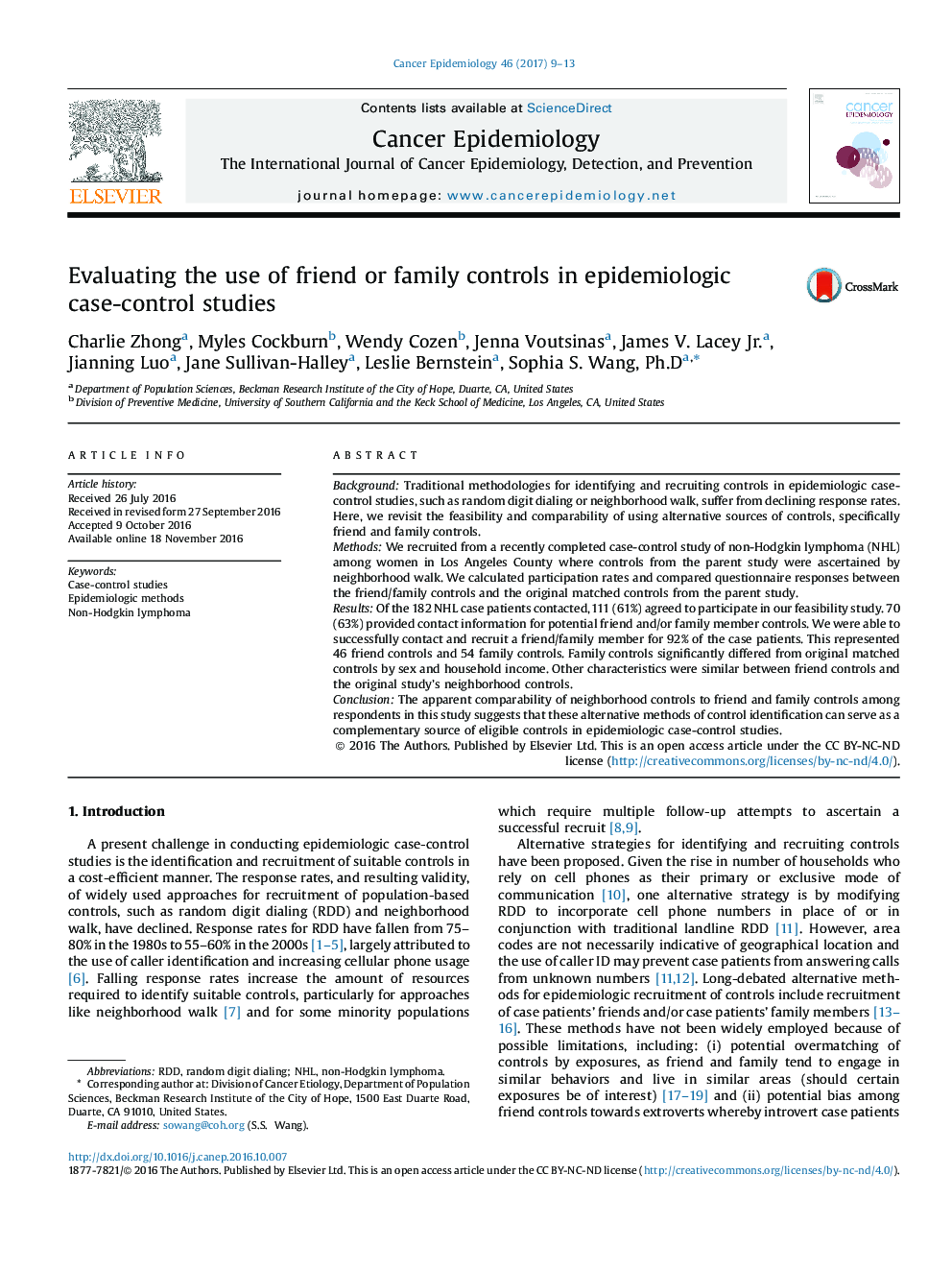| کد مقاله | کد نشریه | سال انتشار | مقاله انگلیسی | نسخه تمام متن |
|---|---|---|---|---|
| 5524813 | 1546529 | 2017 | 5 صفحه PDF | دانلود رایگان |
- We evaluated the feasibility of recruiting friend and/or family members of cases to serve as controls for a case-control study design.
- Ascertaining friend and family control information from case patients at recruitment could supplement other methodologies control recruitment.
- Friend controls were found to have similar demographic characteristics and questionnaire responses compared to population based controls.
- Family controls differed in sex and income compared to population based controls, but otherwise had similar questionnaire responses.
BackgroundTraditional methodologies for identifying and recruiting controls in epidemiologic case-control studies, such as random digit dialing or neighborhood walk, suffer from declining response rates. Here, we revisit the feasibility and comparability of using alternative sources of controls, specifically friend and family controls.MethodsWe recruited from a recently completed case-control study of non-Hodgkin lymphoma (NHL) among women in Los Angeles County where controls from the parent study were ascertained by neighborhood walk. We calculated participation rates and compared questionnaire responses between the friend/family controls and the original matched controls from the parent study.ResultsOf the 182 NHL case patients contacted, 111 (61%) agreed to participate in our feasibility study. 70 (63%) provided contact information for potential friend and/or family member controls. We were able to successfully contact and recruit a friend/family member for 92% of the case patients. This represented 46 friend controls and 54 family controls. Family controls significantly differed from original matched controls by sex and household income. Other characteristics were similar between friend controls and the original study's neighborhood controls.ConclusionThe apparent comparability of neighborhood controls to friend and family controls among respondents in this study suggests that these alternative methods of control identification can serve as a complementary source of eligible controls in epidemiologic case-control studies.
Journal: Cancer Epidemiology - Volume 46, February 2017, Pages 9-13
